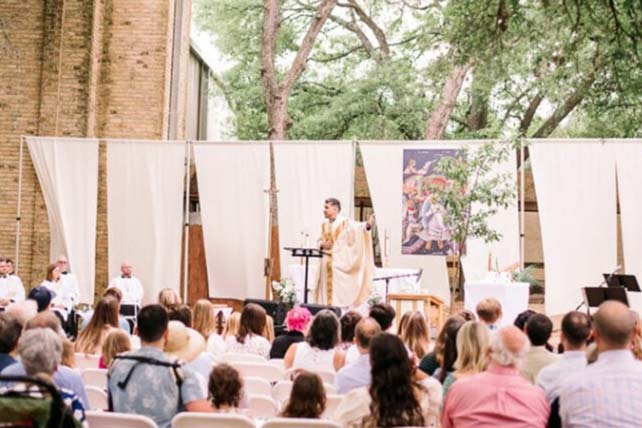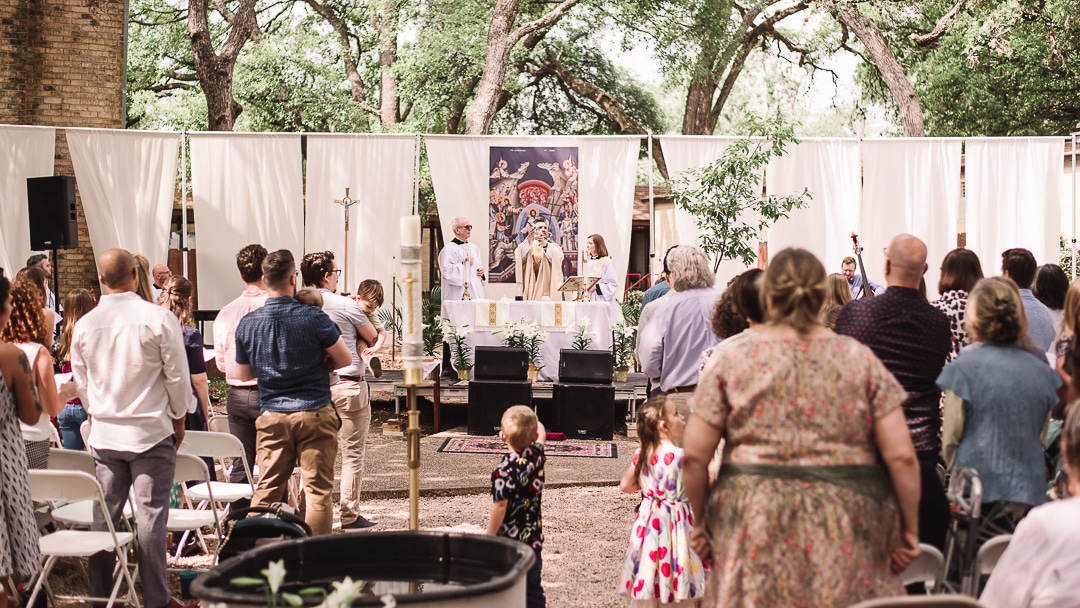Every Sunday for a month, we turned off the livestream, closed the doors. The vestry, clergy and I fielded questions and heard concerns. We prayed a lot too. We had midweek evening prayer for the church, and we would visit table groups and talk and pray together. That month was intense. But really, the gift was we weren’t afraid to talk about the difficulty. We were able to practice peacemaking, listen to each other and seek understanding. We expected God to be present with us in our work and he was.
At the end of that month, the vestry hosted the vote, and by Tuesday morning I got a call from our senior warden with the results. It’s bittersweet because our colleagues in our diocese and our bishop, we love these people. These are our dearest friends. But it was a question about who God had made this church to be, with these people in this place.
What were some of the biggest factors congregants were weighing during this process?
The hard part was around sexuality. It wasn’t that people were afraid of diversity. It was a concern that if we disaffiliated from the ACNA and moved towards the Episcopal Church, we would join a body that would change us in ways that we don’t want to change. Though change can be difficult, our parish has never been afraid of it, especially when we sense God‘s invitation.
I had to continue to reframe the discussions to say, this isn’t a vote about becoming open and affirming. People who have a traditional sexual ethic don’t have to change to go forward. What we’re saying is, more would have to change if we were to stay in the ACNA than if we were to leave, because of the ways that we were already including sexual minorities, addressing the treatment of women and confronting racism.
An outdoor service at Resurrection Anglican Church in Austin, Texas. Photo © Kelly Carlson
What implications did this vote have for same-sex marriage and the ordination of queer folks?
We have to have our own conversation as a church, openly, with curiosity and in faith. We are already an inclusive church. We already have people serving who are gay. We’ve just hit a limit within the ACNA in terms of leadership. There’s this whole community in our church that now feels safe to volunteer and take their place in the church, which is such good news to us.
And yet there’s work to be done. How do we engage the very complex topic of sexuality? It’s been oversimplified and ratcheted up to a crisis of orthodoxy, which I think is inappropriate. This isn’t something that defines a Christian. So let’s rest in that and actually talk about what Scripture says. We have classes coming up about what it means to be a Christian and how we read the Bible. And from there, we’ll dive into, how do we interpret the Bible about what it’s saying about sexuality? And how do we carry those interpretations in ways that are generous and humble?
Then there’s the other process in the Episcopal Diocese of Texas. Before you can even do same-sex marriages, you have to go through a discernment process with your parish. I think there’s a lot of wisdom and goodness in that, especially for our church.
What was the biggest challenge during the disaffiliation process?
There was a cost to this. We lost some dear family and friends. This was so personal for people. We’re so deeply invested in community, in each other’s lives. We’re still in touch with those people and offering to connect them with another church, providing pastoral care.
How do you view this disaffiliation in the context of broader denominational politics?
This gets folded into an old storyline of conflict between the ACNA and the Episcopal Church. People assume that we were Episcopalian before, but we were planted as an Anglican church. These aren’t our fights. Our local parish doesn’t have the same history. We have matured and developed a deeper sense of who we are, who God has made us to be and where we’re going. That’s when we realized we need to have a hard conversation about feeling like we’re getting in the way of the denomination we’re in. So for us, it started with the local church.
This article originally appeared here.


